Sunflower cultivation.................

Sunflower is a familiar flower. Its oil is unique in meaning. Due to its huge demand all over the world, commercial cultivation of sunflower started in this country in the sixties. At present it is being cultivated extensively in different districts including
Use of sunflower


A) Sunflower seeds are fed to poultry as fodder.
B) Oil is extracted by threshing in this seed machine Sunflower is widely cultivated in different countries of the world as a source of oil.

C) Sunflower oil, also known as vegetable oil, is used as an alternative to ghee.
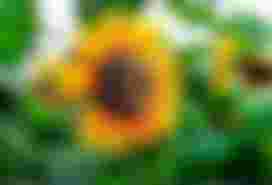
D) Sunflower oil is better than other cooking oils and is quite effective for heart

patients. Cholesterol levels are very low. It also contains vitamins A, D and E.
E) The best source of Vitamin-E is the seeds of this sunflower.

F) Vitamin-E has many beneficial aspects. Vitamin E acts as a free radical resistant or antioxidant. The potency of vitamin E includes two more properties that play a significant role in heart disease. These two properties are anti-inflammatory and

help in smooth muscle cell growth. The ability of muscle tissue to produce cells as well as its anti-inflammatory properties prevent these blood vessels from narrowing. Vitamin E is also known to have anti-cancer properties.


During cultivation
Sunflower cultivation is mainly done in in the hope of getting good yield. Sunflower can be cultivated throughout the year. However, the best time to cultivate is in the month of Agrahayan. The temperature in the northern and western parts of the

country is 15 degrees Celsius. If it is below this, seeds should be sown after 10-12 days. It can also be cultivated in Kharif-1 season i.e. Jaistha (mid-April to mid-May).
Land ready

Sunflower land is to be cultivated deeply. The land should be plowed 4-5 times and the soil should be plowed with a ladder.
Variety selection

The Kirni (DS-1) variety was invented in 1982 by selection from germplasm. This species grows to 90-110 cm. Is tall. Seed weight is 60-65 grams per thousand.


The seeds are long and flat in shape and black in color. Each tree has one flower.
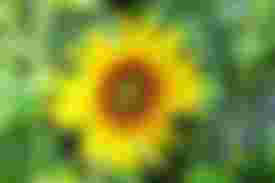
It takes about three months to collect the crop after sowing the seeds. Yield is up to 1.5 tons per hectare. It takes about 90-100 days to collect the crop. Learn the method of mango cultivation.

Sowing method and seed rate
Sunflower seeds are sown in rows for commercial cultivation. Seeds are sown at a distance of 5050 in rows and 2525 in columns. It requires 8-10 kg of seed per hectare.

Use of sunflower
Sunflower grower
Fertilizer application
Approximate amount of fertilizer per acre
Urea 450-500 kg,
TSP 360 kg,
MP 300-360 kg,
Gypsum 350,
Zinc 20 kg,
acid 25 kg,
Magnesium 230-250 kg.

Urea fertilizer should be halved and all other fertilizers should be sprinkled on the land at the time of final cultivation and mixed with the soil. The remaining half of urea fertilizer should be given in two parts. The first part should be applied 20 days after germination and the second part 40 days later or before flowering.
Diseases and remedies

Leaf blight is a special disease of sunflower. Sunflower disease is caused by fungal attack. At first the leaves are gray or dark brown in color. The spots are uneven in shape. Later all the stains merge and create big stains. Eventually the whole leaf glows.

Sunflower acetate is also a root rot disease. Outbreaks appear to be exacerbated during fungal infections. At the base of the affected tree are white cotton-like fungal and round grain-like sclerosium. At first the tree fell a little. Within a few days all the trees fell down and dried up. Read more Trees that kill insects.

Disease tolerant varieties need to be cultivated for remedy. As soon as the disease occurs, Rovaral-50 WP (Rovaral-500 WP) is mixed with 2% water and applied to the soil 2-3 times in 10 days to reduce the incidence of the disease. If the remaining part of the plant is destroyed or burnt after harvesting, the germs of this disease are destroyed.

As a remedy for sunflower root rot disease, the spread of the disease can be prevented by cleaning the field with the help of Vitavex-200 (Vitavex-500). Usually if the soil is wet, this fungus cannot survive. Thus, after the onset of the disease, the incidence can be reduced by flood irrigation in the land. Periodic cultivation of crops on the same land in the absence of suitable nutrient plants can prevent the spread of previous invasive diseases.



Harvesting




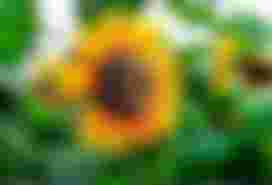









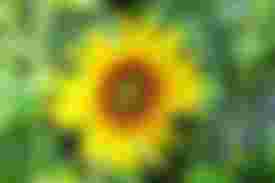






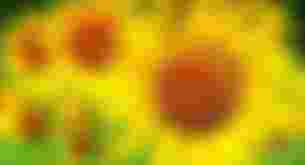

We Coultivet this Sunflower is at our Home Roof... My Father love this Flowers very much